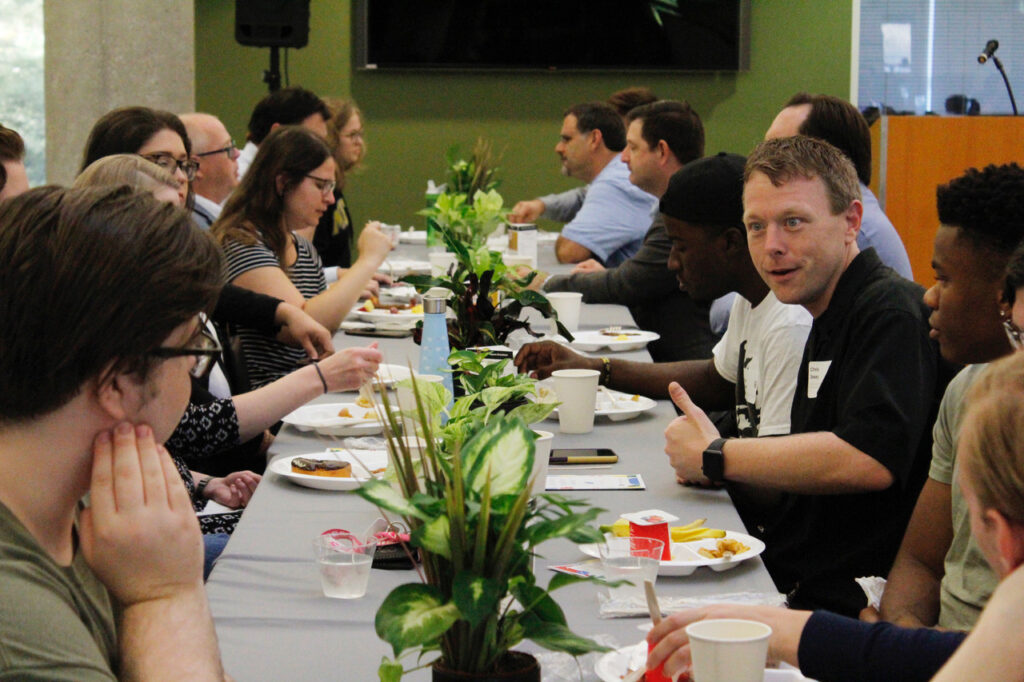Published on Oct. 2, 2019

Faculty and students gathered Oct. 1, 2019, for the ASH Scholars Breakfast in MU’s Bond Life Sciences Center to celebrate the success of the ASH Scholars Program and hear from students and faculty on their projects.
The program, founded in 2016, is a collaboration between the MU Honors College, Office of Undergraduate Research and Office of the Vice Provost for Undergraduate Studies. Faculty members are paired with honors students on interdisciplinary projects in the arts, social sciences and humanities, dedicating time for project development and presenting findings at various research forums and conferences.

Gabrielle Scott, from the “Close Relationships” research project, and Wes Goodwin from “The Art of Death,” enjoy breakfast and conversation. Photo by Ashley Dorf
“Built on the model of the graduate research team, ASH answers the call for how we can positively respond to challenges, and, in fact, make ourselves stronger,” said J.D. Bowers, director of the MU Honors College.
There are four current ASH projects: Documenting Luyia Together, which researches the Luyia language cluster in western Kenya; Close Relationships, focused on relationship challenges and positive outcomes; The Art of Death, which examines mortality in art and human history; and Minority-Focused News as a Locus of Empowerment, which studies the content and effects of minority-focused news.
Since the program’s inception, there have been 92 student participants. As students learn valuable research skills and build relationships with their accomplished advisors, faculty members receive research assistance –– creating a mutually beneficial learning environment.
“The expansion of the program has been amazing to see,” said Sarah Pribe, who has been a Scholar in the Documenting Luyia project for all four years. “It has expanded to include additional languages, it is building both talking dictionaries and language documentation, and it is allowing us to work on a project with vitality and substance.”